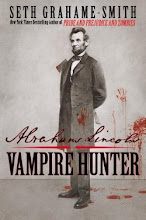"To wit, a story or myth makes sense of a meaningless world. So previously I’ve stated that we have our cycle and our one story. Our cycle is based on the sun, and our one story is about sex."~the purpose of flowers
DEATH.
Ourone Story is The Sun; is Sex/Death (The Alpha & The Omega).
-the moon also tells this story in its monthly cycle. (it writes in water also like the sun)
Apollo and Artemis, 1997 Andrew Conklin
moon
ORIGIN Old English mōna, of Germanic origin; related to Dutch maan and German Mond, also to MONTH , from an Indo-European root shared by Latin mensis and Greek mēn ‘month,’ and also Latin metiri ‘to measure’ (the moon being used to measure time).
Der Mond
the moon--German
Le Monde
Mind
ORIGIN Old English gemynd [memory, thought,] of Germanic origin, from an Indo-European root meaning ‘revolve in the mind, think,’ shared by Sanskrit manas and Latin mens ‘mind.’
Going
Beyond (the moon, the world, the story, Sex, Death, the mind and time!)
-eschaton? apocalypse?
noun (the eschaton) Theology
the final event in the divine plan; the end of the world.
ORIGIN 1930s: from Greek eskhaton, neuter of eskhatos ‘last.’
noun (often the Apocalypse)
the complete final destruction of the world, esp. as described in the biblical book of Revelation.
• an event involving destruction or damage on an awesome or catastrophic scale
• ( the Apocalypse) (esp. in the Vulgate Bible) the book of Revelation.
ORIGIN Old English , via Old French and ecclesiastical Latin from Greek apokalupsis, from apokaluptein ‘uncover, reveal,’ from apo- ‘un-’ + kaluptein ‘to cover.’
1 And a great sign appeared in heaven: A woman clothed with the sun, and the moon under her feet, and on her head a crown of twelve stars. 2 And being with child, she cried travailing in birth: and was in pain to be delivered. 3 And there was seen another sign in heaven. And behold a great red dragon, having seven heads and ten horns and on his heads seven diadems. 4 And his tail drew the third part of the stars of heaven and cast them to the earth. And the dragon stood before the woman who was ready to be delivered: that, when she should be delivered, he might devour her son. 5 And she brought forth a man child, who was to rule all nations with an iron rod. And her son was taken up to God and to his throne. 6 And the woman fled into the wilderness, where she had a place prepared by God, that there they should feed her, a thousand two hundred sixty days.~ Book of Revelation 12:1-18:















.jpg)






















